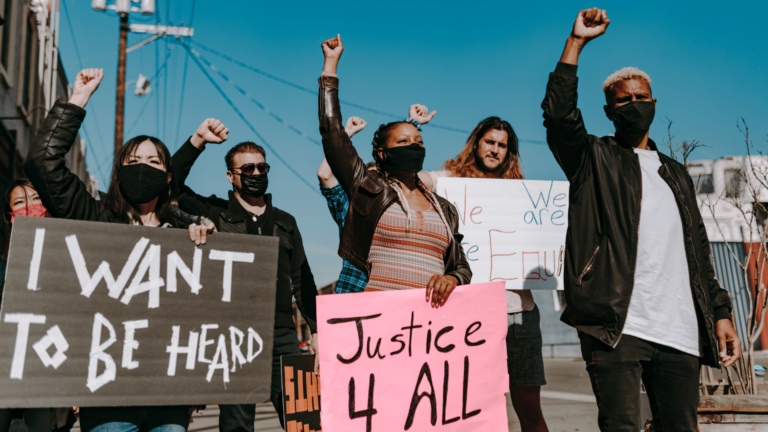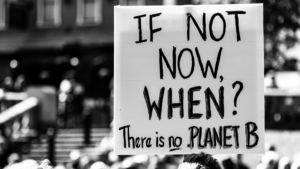26th January, the most important date in post-independent India. After long strings of arduous
debates and discussions, on this day in 1950, India officially became a democracy. To choose
anything else as a governance system never seemed to be an option. There was a sense of
unanimity in the drafters of our constitution. Probably that is why the Preamble which is
supposed to be a blueprint of sorts was left for the end to discuss. It described the nation as a
sovereign democratic republic. Even though Dr. Ambedkar, the chairman of the drafting
committee in their discussions has once said to J.B. Kripalini, ’in a constitution, nothing goes
without saying’, the appeals to add words like socialist and secular in the Preamble were
rejected. Dr. Ambedkar argued, if one goes through different sections of the constitution, the
ideas secularism and socialism i.e a welfare state were innately present and hence were not
necessary to be mentioned. Nevertheless, reading only the preamble of our constitution, makes
it clear, the vision that the Constituent Assembly had, of the India they wanted to create and it
still reflects the ideals of the independence movement- masses of people who stand together as
equals with all their differences, working towards a common goal for the betterment of the
society as a whole. The Constituent Assembly might have chosen democracy unanimously, but
some had complaints with the final drafts. Naziruddin Ahmad believed that the constitution was
so poorly drafted that it would be a lawyers’ paradise. H.V. Kamath had issues with not
mentioning God in the preamble. Kengal Hanumathaiah said, “we wanted the music of veena or
sitar, but here, we have the music of an English Band”.
Irrespective of what any of us may think, in context of the balance of pros and cons of our
prescribed constitution, on the surface, it really is nothing, but a book. Some may argue that this
book is what gives all the rights and powers to the citizens and executives and is intrinsic for the
functioning of the country, but one cannot deny the fact, it is the very citizens of the country that
give the power to the constitution that it holds. They are the life and death of the constitution.
This is precisely the reason why the preamble starts with the phrase, ‘We the people of India…’
which is, the real essence of what a democracy is. Remember the overly utilised phrase – of the
people, for the people, by the people?
Now if one introspects, this formula makes a democratic country seem like any living organism,
and us citizens as the multiple cells that form different organs. A healthy being requires
healthier organs, goes without saying, and this means, like any living being this geopolitical
being too, is prone to disease and illnesses that tends to weaken democracy and turn it into
something close to a state of authoritarianism or anarchy. There have been bacteria or viruses
of sorts that have been festering this being called India due to which many times it was believed
to be leading farther and farther from democracy.-
1. Hero Worship-
– In a country like India which is imbued with a path of devotion, it does not
remain a mystery why the masses are prone to put their blinding trust in one person. The
biggest changes in the world too were brought by great leaders and the unflinching support of
their followers. But, no matter how right the choice of your leader may seem, there is always
scope for misplaced trust. It is natural for an individual to draw inspiration from another
individual or in this case, a representative but to put unquestioning blind faith in anyone is
always dangerous. It strips the individual of the capability to think independently. The leader becomes their only hope against any social ill. This leaves all the power with the leader which
may lead them to become the master and the followers, their puppets.
If a leader is left unchallenged on the ground of his policies, neither will there be any scope of
growth in their leadership nor will the followers ever learn to think for or by themselves. This can
further degrade the intellect of the masses, which can keep them ignorant of the bigger picture.
This ignorance helps the leader with an authoritative streak to cease power while keeping their
followers or citizens under the impression that it’s all being done for the greater good.
2. Misinformation and Illiteracy-
As mentioned earlier, democracy is a system of governance
that is given by the people, to the people, which means, the general masses play an important
role in its functioning and maintenance. This requires the masses to be educated and well
informed. While education gives better chances of employment, it also helps its bearer to get a
nuanced understanding of the world. It has the capability to act as a filter against one’s biases
and prejudices which one may have caught on to due to their surroundings. Although it may
take more than just education to question one’s own biases. Nevertheless, education or literacy
helps an individual to make better decisions when met with critical situations, due to the
exposure with wider streams of thoughts that it provides. And in a democracy what could be
more critical than voting.
Illiteracy tends to drive an individual by their baser instincts and makes it difficult for them to
keep a check on their pre-disposed biases. It also makes an individual more prone to
propaganda and false narratives set forth by the benefactor. And once the narrative is adopted
by the general masses, they can be used by the leader for better or worse.
3. Corruption-
– Corruption may not be a direct indicator of the rise of authoritarianism but it can
certainly give rise to one. It has the tendency to make the public ask for a strong leadersomeone who sees through the corrupt methods of their institutions and government, someone
who can connect with the masses and make them believe in their leadership, someone who
could convince the masses that he/ she alone can clean the system through and through and
once they come to power, they use it to make tougher acts or laws to curb the corruption in it’s
previous form while the problem of its existence and persistence remains unchecked. This
mutates the corruption to take a different form which makes it an even harder force to be dealt
with. It must not be deduced that any leader or representative who promises to build a
corruption free society has to have an authoritative streak, but as someone has said, with all the
power at your disposal, the temptation is always there.
When someone wants a leader who can get things done, it implies that they need a leader who
is effective and efficient in decision making. To achieve effectiveness and efficiency in
governance is not an easy task in a democracy. All the bills and amendments need to go
through the process of vigorous discussions so that everyone can give their inputs, so that a
final draft can be prepared which could be agreed upon. To fast forward this process means to
bypass all the debates and discussions making it a unilateral decision, which is anything but
democratic. Some may appreciate a leader who might get things done but it also means that the
individual who wishes so, is ready to concentrate all the power and authority at a single point
which undermines all the institutions that maintain the balance of power, making the country ripe
for an authoritative rule.
4. Fear-
Fear is one of the most alarming symptoms that a democracy is losing its spirit and is
leaning towards an authoritarian or anarchic state. It comes in many forms- fear of a
neighbouring country attack, Fear of foreign conspiracies, fear of or from a community. Fear is
often professed or seeded into the general populace’s psyche by propaganda and fake news.
This tends to make the public gullible and makes it easier for the authority figure to gather blind
followers. While some may argue that fear helps to kick in the survival instincts when needed,
but let’s agree with one of the proverbs older than any of us alive- it clouds one’s judgement too.
The members of our constituent assembly, when they chose democracy to function the country,
it was nothing short of a leap of faith. They kept their faith in the citizens of the country. We have
the right to choose our representative, it is our responsibility to do so wisely, for the
representative we might choose may have a sinister side to their personality.
Politicians often make several promises in the election season,it is for us to realise the
loopholes in the oversimplified explanations of their policies or ideologies. These tactful tasks
can be difficult to be exercised by a society that is sensationalised by misinformation, weakened
by a common fear or blinded by the faith in their leaders. History has had its moments, when
authoritarian leaders with the support of the majority, wreaked havoc on the very people they
swore to protect. It had happened earlier and can happen again. Democracy might not be a
switch that can be turned on or off but with the perseverance of an authoritarian, it can be
democratically opted out of.
So look around you, and think for yourselves, are there any of these symptoms that point
towards an ailing democracy. Are there any other symptoms that may point towards the same.
Are they really symptoms or merely the imagination of a fool?










